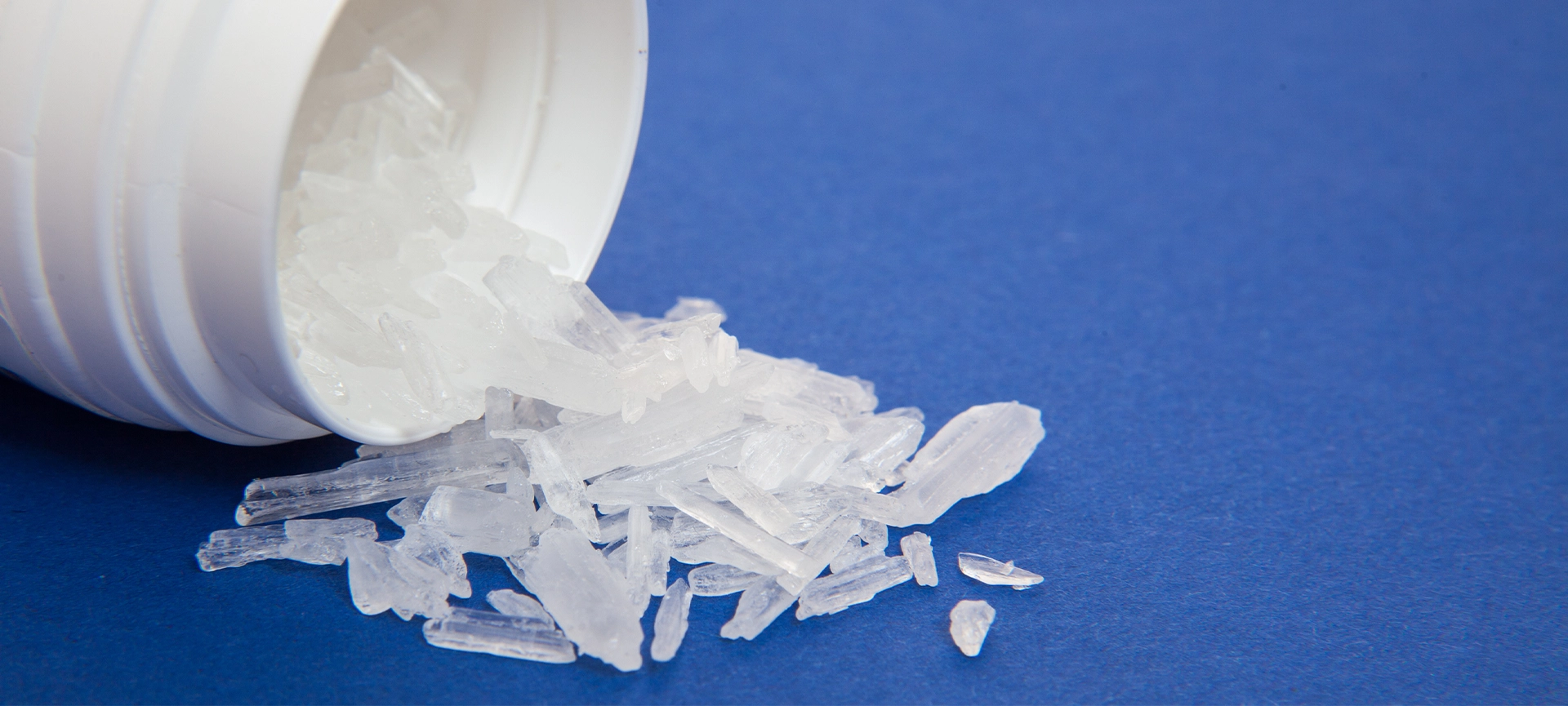Meth addiction isn’t just a habit. It’s a medical condition that damages the brain and body. It hijacks decision-making, creates extreme highs and crashes, and makes quitting feel impossible. But people do recover, and the best treatment makes a real difference.
Related Article: 12 Step vs SMART Recovery Programs for Addiction
Why Meth Is So Addictive
Methamphetamine floods the brain with dopamine — a chemical linked to pleasure, motivation, and reward. This surge creates an intense high. Over time, though, the brain stops producing dopamine naturally, leading to dependence.
Users begin chasing the high while needing more to feel anything. This cycle leads to binge use, poor sleep, paranoia, aggression, and long-term damage to memory and emotional stability. Once addicted, stopping meth isn’t just about willpower. It requires professional care.
What Makes Meth Treatment Effective?
There’s no quick fix for meth addiction. It’s not like healing a broken bone; it’s more like retraining the entire nervous system. The best treatment for meth addiction isn’t a single approach or magic pill. It has to be multi-layered, structured, and personal.
Why? Because meth doesn’t just affect the body. It changes how the brain processes emotions, memory, and motivation. That means effective treatment must rebuild physical strength, reshape thinking, and introduce new ways of handling stress and relationships.
Many people who use meth have also faced trauma, anxiety, or untreated mental health issues. Others started using it to boost performance or energy, only to become dependent over time. No two cases are the same, so treatment can’t be either.
Meth addiction is hard, but it’s treatable. With the right approach, people don’t just stop using. They start living differently.
Related Article: How to Notice Meth Addict Signs
Phase 1: Supervised Detox – A Safer Start
Meth withdrawal is intense. It’s not physically dangerous like alcohol withdrawal can be, but the mental crash can be brutal. People often feel depressed, anxious, and exhausted. They may experience hallucinations, violent mood swings, or thoughts of self-harm.
Trying to quit alone can be dangerous. Many relapse within days, sometimes hours.
That’s why we offer 24/7 supervised detox. Our team provides medical monitoring, rest, hydration, and psychological support during this early stage. We don’t just manage symptoms but create a calm, safe space where recovery can begin.
Related Article: What to Know About Detox and Withdrawal
Phase 2: Inpatient Treatment – Building a New Foundation
Detox clears the body, but meth addiction goes deeper than the drug. Without therapy, the brain stays stuck in survival mode, and cravings don’t go away. Inpatient rehab helps clients reset their thinking, rebuild emotional control, and develop new tools for life.
At Addiction Rehab Toronto, our inpatient program includes:
Cognitive Behavioural Therapy (CBT)
CBT is a gold standard in addiction care. It teaches people how to identify negative thoughts and replace them with healthier patterns. For meth users, this might mean challenging ideas like, “I can’t cope without it” or “I’m too far gone to recover.”
Trauma-Informed Therapy
Many clients have trauma, either from childhood or adult experiences. Meth is often used as an escape. If trauma isn’t addressed, relapse risk stays high. Our therapists create a non-judgmental space to work through that pain safely.
Group Counselling
Hearing from others helps break the shame. Group therapy creates community, builds trust, and helps people realize they’re not alone. Peer support can be just as powerful as clinical insight.
Nutrition and Physical Recovery
Meth drains the body. Most users arrive depleted, underweight, and sleep-deprived. We provide nutritious meals, fitness support, and rest to help people feel human again.

Phase 3: Long-Term Support – Preventing Relapse
Meth recovery isn’t over when rehab ends. Long-term success depends on structure, connection, and support. Our clients receive:
Aftercare Planning
We help every client map out the months after discharge. That includes housing options, therapy sessions, relapse prevention planning, and peer support group connections.
Virtual Rehab Access
For clients who need flexibility or ongoing therapy post-discharge, our virtual programs offer real-time counselling from home. It’s a lifeline for those adjusting back to work or family life.
Family Counselling
Addiction affects more than the user. It damages trust, causes resentment, and breaks communication. Our family therapy sessions help rebuild those relationships, set healthy boundaries, and create a support system for everyone involved.
Realistic Expectations and Long-Term Recovery
Meth recovery isn’t linear. There are setbacks, plateaus, and hard days. But with the right tools and support, long-term recovery is absolutely possible.
It’s common for meth users to stay in treatment longer than those with other addictions. Cravings can persist for months. That’s why our approach is flexible. Some clients need 30 days, others need 90 or more. There’s no rush. The goal isn’t speed; it’s stability.
Related Article: Solution-Focused Therapy for Addiction: Small Goals, Big Results
What If Someone Doesn’t Want Help?
This is one of the hardest situations families face. A loved one is clearly struggling. Their behaviour is changing, their health is deteriorating, and their relationships are falling apart. But when you bring up treatment, they shut down. They might deny the problem, lash out, or claim they’re in control.
At Addiction Rehab Toronto, we get calls every day from families in this exact position. And here’s the truth:
You can’t force someone to recover, but you can still help.
Denial is common in meth addiction. The drug alters brain chemistry and decision-making. Many people genuinely believe they’re managing it, even when the signs say otherwise.
Some are afraid of withdrawal. Others don’t think they deserve help. Some have tried before and failed. Shame plays a huge role.
So what can you do?
1. Create a Safe, Non-Judgmental Environment
Yelling, threatening, or arguing usually pushes people further away. Instead, express concern calmly. Use “I” statements. For example:
- “I’m really scared about how much you’ve been using.”
- “I miss the old you.”
- “I don’t want to lose you.”
Even if they brush you off, your words sink in.
2. Set Boundaries and Stick to Them
Support doesn’t mean enabling. Let them know you won’t lie, give money, or cover for their behaviour. Boundaries aren’t punishment; they’re a form of protection for both sides. They also help the person see the real impact of their addiction.
3. Gather Information and Options in Advance
Sometimes, people reach out for help in a moment of clarity, and that window can be short. Be ready. Have information about treatment, detox, and support services on hand. When they’re ready, the path should be clear.
4. Get Support for Yourself
Addiction affects entire families. Don’t wait for your loved one to get help before seeking your own support. Family counselling, peer groups, and professional guidance can help you manage stress, set boundaries, and prepare for recovery, whether it starts tomorrow or months from now.
5. Don’t Give Up After a Setback
Many clients come to us after one or more failed attempts. Relapse isn’t failure; it’s part of the process for many people. What matters is helping them come back to the table. Each time, they learn something. Each time, the odds of lasting recovery go up.
People don’t have to hit rock bottom to start healing. Sometimes, all it takes is knowing that help is real, recovery is possible, and someone is ready to walk with them when they say, “I’m done.”

Taking That First Step Is the Hardest Part
Meth addiction doesn’t end on its own. It takes real support, structured treatment, and the belief that change is possible. The good news? Thousands have made it through. So can you or the person you love.
At Addiction Rehab Toronto, we don’t promise overnight miracles. We promise real care, expert help, and the tools to start again.
Recovery Is Real, and It Starts Here
The best treatment for meth addiction is built on expertise, structure, and human connection. At Addiction Rehab Toronto, we combine evidence-based care with genuine compassion. You don’t have to figure it out alone. We’re here to help, every step of the way.
Call us today to start a conversation that could change everything.







